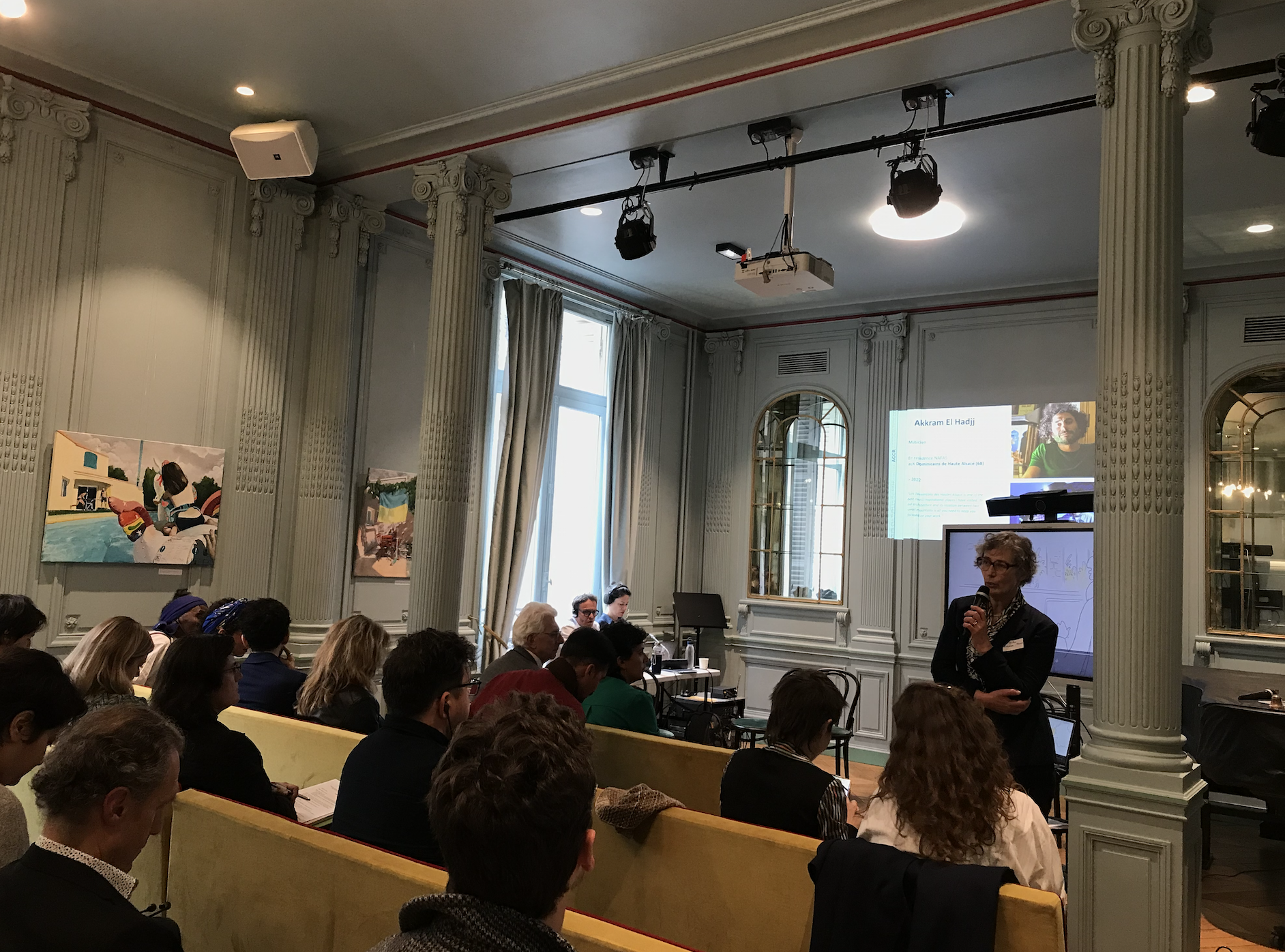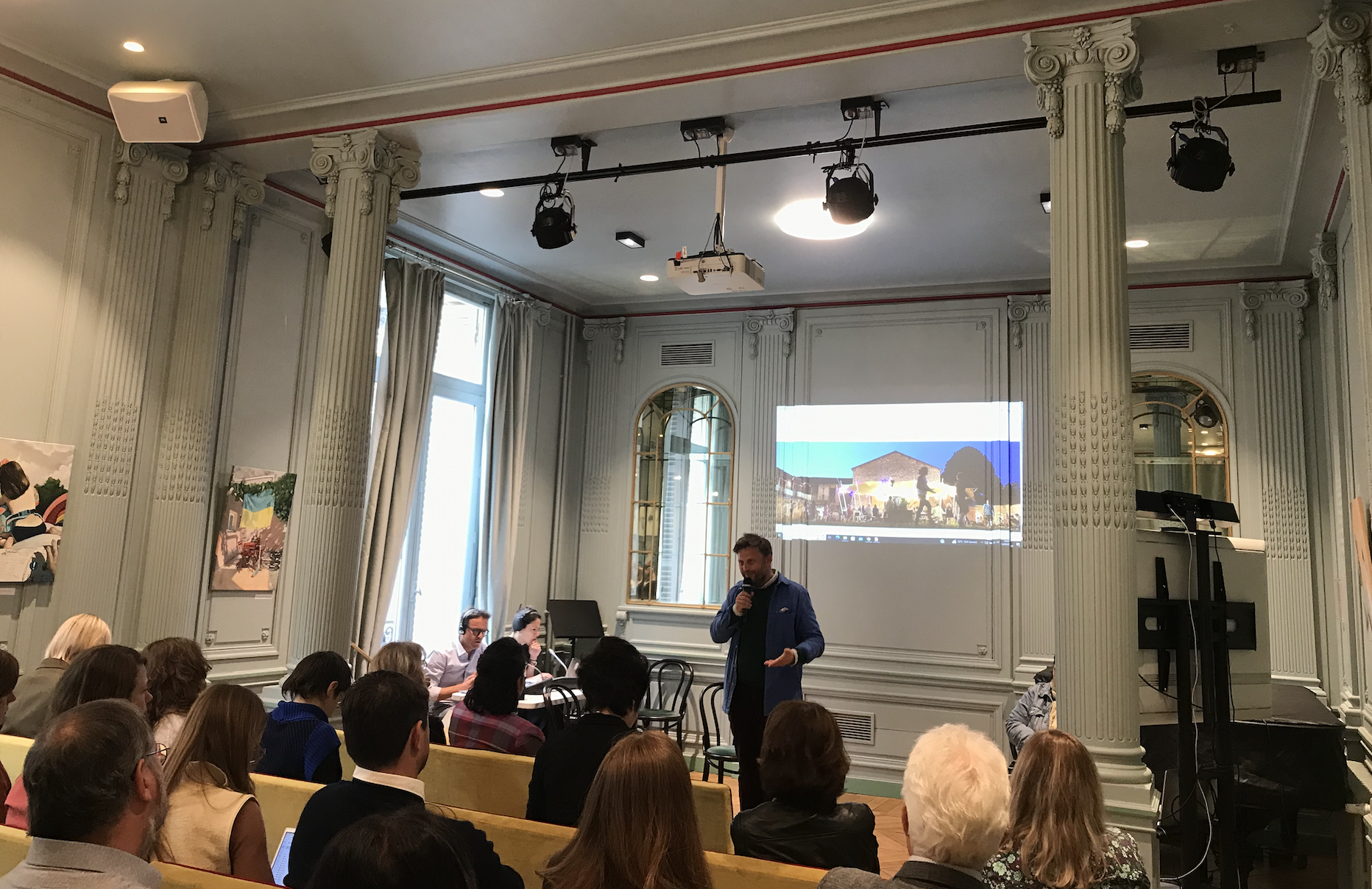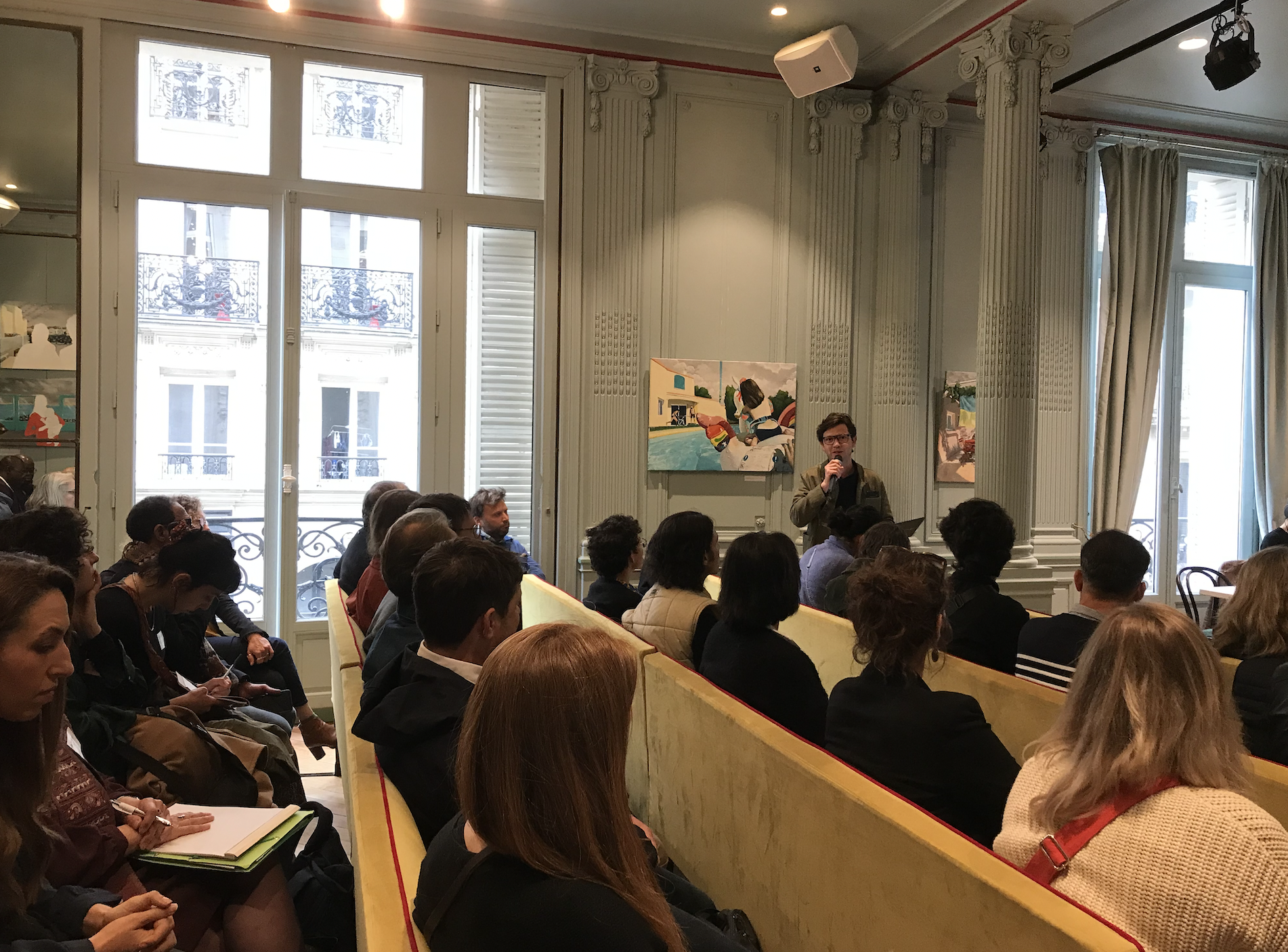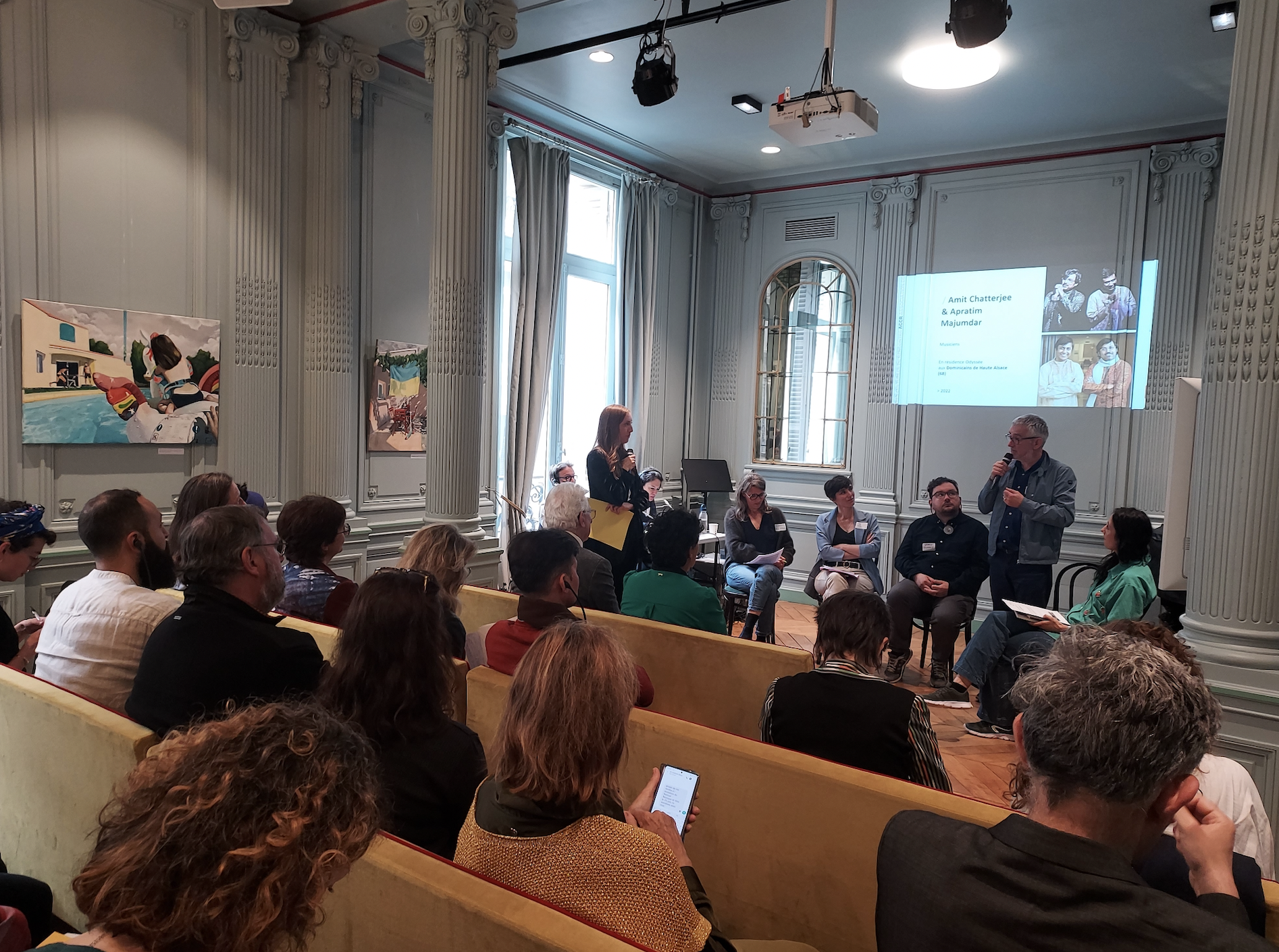To mark the 20th anniversary of the Odyssée residency programme for foreign artists, cultural professionals and researchers, the ACCR and its partners met at the Grange-Fleuret music library on 11 and 12 May 2023. These two days of exchanges highlighted the reciprocal contributions made possible by the residency programmes.
Since 2003, the Odyssée programme has enabled the ACCR and its members to share mutually enriching experiences with more than 750 artists and cultural professionals, representing 84 different nationalities, in fields as varied as music, architecture, crafts, the visual arts, playwriting, animated film, photography and journalism.
Through personal accounts and collective reflection workshops, the participants were able to express what the residency represented, both as an artist and as a host organisation, what it implied in terms of the issues to be taken into consideration to ensure that this creative time was beneficial to everyone, and the joint commitments to be envisaged for the future.
A residency in a CCR/
Over the course of the two days, several French and European CCR presented their conception of artist residencies and the practical ways in which they are implemented within their structures. While each CCR offers different experiences due to their unique structure and the particularities of the site, there are many common perspectives. The RACs share a common vision of residency, which requires the deployment of the financial and technical resources necessary for free creation.
Welcoming artists in residence is part of the DNA of the CCRs, part of their core mission. Welcome and hospitality are two of the core values of the CCRs. A residency is an opportunity to provoke encounters and open up a conversation with the international community. By their very nature, the CCRs are places for dialogue, between heritage and contemporary creation, between French and foreign cultures. What's more, their space, which is often vast, lends itself easily to this.
The CCRs take an active approach to residencies, receiving as well as giving. The time spent in residence is just as beneficial for the centre's activities and development as it is for the artist, who benefits from a free and privileged creative environment in an exceptional setting. In fact, the residency can be a way of opening another window on the CCRs artistic and cultural programming. As for the artist, he or she can immerse him or herself in a new culture that can give a different perspective to his or her work.
The stakes involved in a residency: from the choice of project to the arrival of the artist/
The fact that the CCRs welcome artists and are keen to host them does not make the process any easier, nor does it alleviate the organisational issues that arise. In fact, the CCRs, most of which are faced with a lack of human resources, find it difficult even to devote time internally to residents' choices. Given the importance of this choice, which is the lifeblood of the CCR, this time is essential and requires detailed knowledge of the site and its structural project. The worry of not being able to devote enough time to the artist once on site is one of the factors that sometimes limits the number of people welcomed.
As for the logistical issues, these can revolve around the artist's integration. The RCCs are not hotels where artists are isolated from their environment. On the contrary, the aim is to enable them to meet the site teams, the audience and the other artists present at the same time. We need to think about their encounter with the area. The dialogue with the artist is therefore essential in order to know how to organise the residency between creation time, performance time and informal discovery time.
What does the future hold for the programmes coordinated by the ACCR? /
As well as looking back at the best practices that have been in place for 20 years, the aim of the meeting was to consider the future of residencies by consolidating certain approaches and exploring others.
In particular, the need to maintain links with the Instituts Français, which act as a bridge between artists and French residency programmes, was highlighted. As an interface between the French and international cultural scenes, the Instituts Français offer their expertise on the international scene and their in-depth knowledge of local markets.
In the interests of the environment, the length of artists' stays at the CCRs has been discussed. Extending the length of stay for artists coming from afar by plane seems reasonable. The idea of increasing the number of cross-residencies would also make it possible to optimise an artist's stay: once in France, there are many soft mobility options for getting from one CCR to another, whether in France or in Europe. Residencies thus appear to be a way of bringing the network closer together and facilitating joint projects.
In order to formalise the commitments already in place and those to come, the idea of drawing up a common charter for residencies, already initiated at the Corte Ospitale during an ARIIP Erasmus+ training course in 2022, was again mentioned. A call for expressions of interest should be sent to the CCRs to launch the project in the first half of 2024.




